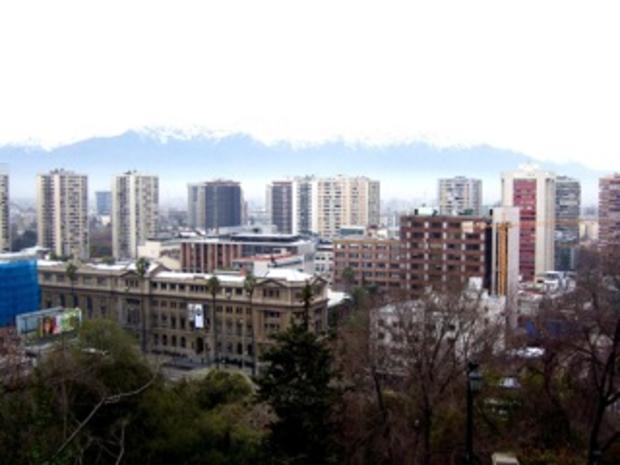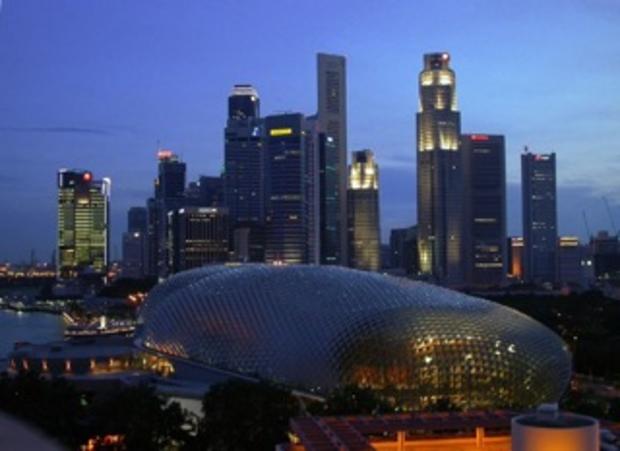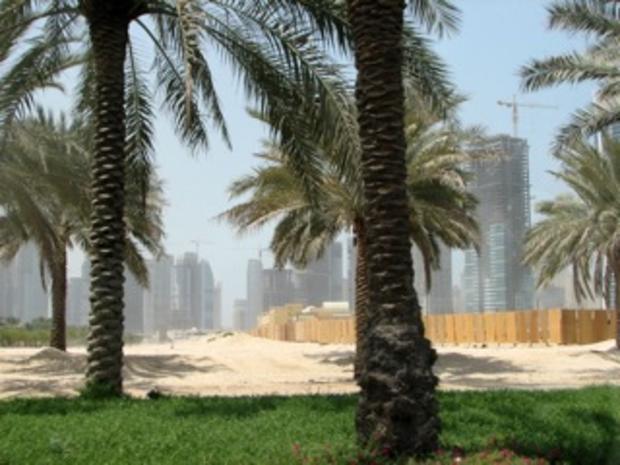Expanding Overseas: The Best Mid-Size Markets
Relatively stable and foreigner-friendly, these growing mid-size markets offer expansion opportunities in regions less vulnerable to the current global economic slowdown.
Chile
Low costs and a business-friendly government make Chile one of the easiest places to operate in Latin America.
(Photo by Bernardo
Wolff, CC 2.0)
- GDP:
- $160.8 billion
- Population:
- 16 million (2006)
- GDP growth rate:
- 5.2 percent
- Why it’s hot:
- Twenty years ago the country moved away from socialistic-style Latin American politics and embraced privatization of airlines, hotels, and other businesses. With many of its 16 million residents of English, Dutch, German, and European descent, “doing business in Chile seems more like doing business in Munich or Brussels,” says Christopher Robertson, international business professor at Northeastern University in Boston. Between 2004 and 2006, Chile’s economy grew about 6 percent per year. Since it signed a free-trade agreement with the United States in 2003, American exports to Chile have more than doubled.
- Sectors in demand:
- Chileans’ standard of living has benefited from rising commodities prices (the country is a leading producer of copper) and from exports to the United States like farmed fish and agricultural products, says Alvaro Cuervo-Cazurra, an international business professor at the University of South Carolina. As a result, Chilean salaries are higher than those in most of Latin America (the gross national income hit $6,810 in 2006), so consumers favor high-priced products. The market is primed for electronics like iPods, Blackberries, and cell phones. Internet use is widespread with 4.2 million users. Because Chile boasts the best telecommunications system in Latin America, American companies also are opening technical support and call centers there. AT&T and Citibank have moved in, and U.S. winemakers including Robert Mondavi have invested in Chilean vineyards.
- Cost of doing business:
- Low. “It’s probably one of the easiest places to do business in Latin America,” says Roy Nelson, professor of international studies at Thunderbird School of Global Management in Glendale, Ariz. A lot of companies use Chile as a headquarters for their Latin America operations, or as a test market for the region, Nelson says. The country ranks high in a survey by the World Bank for the ease of doing business. Chilean companies tend to have better access to credit. Executives spend less time dealing with regulations and customs, and companies suffer fewer losses from crime and power outages than those in the rest of the region.
- Risk assessment:
- Relations between the United States and Chile are better now than at any other time in history, and from a business climate standpoint, Chile is one of the least risky Latin American markets. Corruption is minimal (Chile ranked 20th out of 163 countries in Transparency International's Corruption Perceptions Index for 2006). Corporate tax rates are low (the standard rate is 17 percent). The most problematic factors are restrictive labor regulations and an inadequately educated workforce, according to the World Economic Forum’s Global Competitiveness Report for 2007-08 .
Singapore
Start with Singapore if you’re looking to expand into other Asian markets. (Photo by Besar Bears,
CC 2.0)
- GDP:
- $153.5 billion
- Population:
- 4.59 million
- GDP growth rate:
- 7.5 percent
- Why it’s hot:
- If you want to get into Asian markets, especially China, setting up shop in Singapore can give you powerful connections elsewhere in the region. The country may be tiny — its main island is just 26 miles long — but impressive amounts of capital and myriad products pass through its ports. Most businesspeople speak English, and the country boasts a high literacy rate, a skilled work force, a mature banking system, efficient transportation systems, and advanced Internet and telecom infrastructure. Singapore already has attracted investments from more than 7,000 multinational corporations, including international banks, ship operators, and professional consulting firms, according to the U.S. State Department.
- Sectors in demand:
- Pick Singapore if you’re a high-tech company testing out new applications, or if you’re moving products — especially food, electronics, and petro-chemicals — through Asia. The country also provides safe and sophisticated financial markets, and it has a good location to set up distribution centers or establish Asian headquarters. Singapore promotes itself as the financial and business center of Southeast Asia, but it’s also a top global meeting place and home to a bustling petroleum-refining industry and to chemical and technology manufacturing operations.
- Cost of doing business:
- High. Higher salaries, rents, and housing costs make Singapore an expensive place to operate. Compare it to any major U.S. city rather than its Southeast Asian counterparts. In 2006, a three-bedroom apartment in Singapore fetched an average of $1,851.85, according to the International Civil Service Commission. However, a foreigner-friendly business culture does help ease the financial pain. Last year, Singapore claimed the title of most business-friendly economy in its region, according to the annual “Doing Business ” report by the World Bank and the International Finance Corporation. The government has a strong and stable currency, no exchange control restrictions, low inflation, and low interest rates. Fund management, venture capital, and the debt securities markets benefit from various tax incentives, and the national trade organization, the IE Singapore, helps foreigners set up distribution operations and offers introductions to local suppliers.
- Risk assessment:
- Though a democracy, the country is highly regulated and totalitarian in its social policies. The government imposes harsh penalties and fines for such infractions as eating on a train, crossing the street on a red light, and not flushing a toilet. Don’t expect to buy an apartment; for the most part, they are owned and doled out selectively by the government. Even driving is hyper costly: A permit to own a car can cost several thousand dollars, says the University of South Carolina’s Cuervo-Cazurra. Tracking devices inside the vehicles impose charges on drivers based on where the car goes and at what time of day it is driven.
United Arab Emirates
Dubai, the UAE’s business hub, is the fastest-growing city in the world. (Photo by Rain Rannu,
CC 2.0)
- GDP:
- $ 189.6 billion
- Population:
- 4.4 million
- GDP growth rate:
- 8.5 percent
- Why it’s hot:
- Driven by massive oil wealth, the UAE’s growth has drawn capital and service workers of all stripes to its major city, Dubai. The fastest-growing city in the world, Dubai is a metropolis in the desert where skyscrapers, shopping malls, and man-made five-star resorts rise and open in a matter of months . Multi-lingual and multi-cultural, the desert city has attracted Microsoft, Cisco, Sun Microsystems, Virgin Airways, and Donald Trump, who will build the Palm Trump International Hotel and Tower there. Harvard Medical School partnered with the Dubai Healthcare City to create a center for advanced medical care, research, and education. Its government is pro-business and levies low taxes, but Dubai’s biggest attraction is its location. “It’s equidistant between London and Beijing, nearby India, and at the center of the Gulf region,” says Bruce Fenton, who specializes in the area as founder and president of Atlantic Financial Inc.
- Sectors in demand:
- The population of Dubai is expected to reach 1.9 million by 2010, according to AME Info , an online business news site for the Middle East. The growing population — and tourism — means more people will have money to spend. Dubai will soon to be home to a $4.2 billion airport expansion, the largest shopping mall in the world, the tallest building in the world, and Dubailand, a $69 billion theme park that will include a 55-million-square-foot golf resort, a massive animatronic dinosaur theme park called Restless Planet, and a 20-million-square-foot polo and equestrian club. Such growth means increased demand for housing, cars, hotels, air service, shops, cafes, bars, Internet services, financial services, and cell-phone services. UAE’s government also is aggressively recruiting IT developers, IT support centers, and Internet companies to its Ajman Free Zone, a free-trade information technology park that attracted 632 new companies in 2005. Meanwhile, the Saadiyat Free Zone has attracted attention from regional and global investment and banking institutions. It has lured agriculture, real estate, construction, banking, brokerage, insurance, hotels, and the tourism and entertainment businesses.
- Cost of doing business:
- Low. Labor is cheap. Many construction workers, for example, earn less than $200 a month. (Although more than a thousand workers staged a violent protest for higher wages in March.) The cost of living is low, and consumer goods such as cars are far cheaper relative to other growth markets, because some income is tax exempt. Free zones for manufacturing and distribution allow foreign ownership of business, no corporate taxes for 15 years, no personal income taxes, full repatriation of capital and profits, and no import or export duties payable within the zone. More than 6,000 companies from more than 120 countries operate at the Jebel Ali complex in Dubai, a free trade zone for manufacturing and distribution in which all goods are duty exempt, according to the U.S. State Department. A computerized system in both Arabic and English can help foreigners get easy access to visa documents.
- Risk assessment:
- Hyper investment in real estate and other areas has created a “bubble mentality” that could pose risk if the bubble bursts. Outside of free trade zones, businesses must have 51 percent local citizen ownership. And how quickly business moves depends on where you’re located. If you’re in the Dubai Emirate, expect a Western-style environment. In Abu Dhabi, expect a more measured pace and more traditional, Middle Eastern atmosphere.






